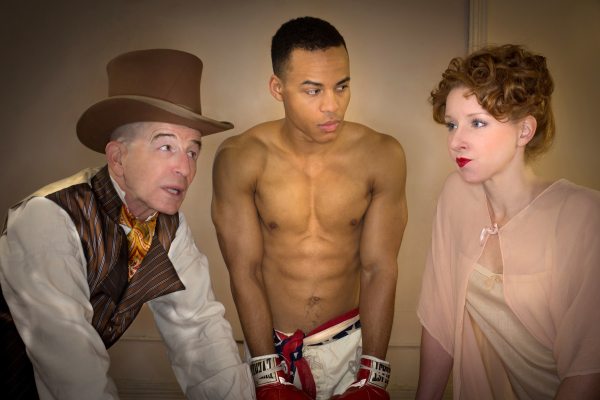

When Adah Isaacs Menken died in 1868, at the very young age of 33, she left behind a legacy that included several failed marriages, friendships with the likes of Charles Dickens, Alexandre Dumas and George Sand, not to mention a legendary performance in Mazeppa, which featured her riding a horse onstage while fully nude. A typical woman she was not, and yet her life story in the production of Horseplay: or, The Fickle Mistress, a Protean Picaresque, does little to express the richness and variety that made her so (in)famous.
The story is set in motion as Adah (Molly Pope) looks back on her life and tells her story to her friend and confidante Frank Queen (Chuck Montgomery), all the way from her childhood in New Orleans, to her affairs with Irish boxer John Heenan (Mark St. Cyr) and Alexandre Dumas (the irreverent Tiffany Abercrombie). Throughout all of these vignettes there are two constants: one is that Adah keeps reinventing herself and being precisely who she needs to be at the moment. There is no apparent awareness or sense of pretension as she takes on her life with a need for quick adaptation that can only be called animalistic.
The other constant is the show’s need to please and reinvent itself as it goes along, with the small troupe of actors playing multiple characters, in an obvious, tongue-in-cheek way that wouldn’t have felt out of place during the time when Adah lived. The problem is that the show overstays its welcome, and by the time we are seeing Adah go through her umpteenth reinvention in exactly the same way (she begins an affair, has people around her shun and judge her, falls back into her old patterns) it becomes a tiresome experience.
The show means well, but fails to make the most out of its greatest asset: Pope’s voice and her cabaret skills. The show comes alive in scenes when Adah chooses to tell her lies through songs, as it’s in these moments when we truly understand why at some point she is referred to as the creator of burlesque. By limiting most of her performance to a series of lifeless scenes with portentous dialogues, Horseplay treats Pope like society treated Menken, trying to mold her into whatever serves their spectacle best instead of letting her blossom.